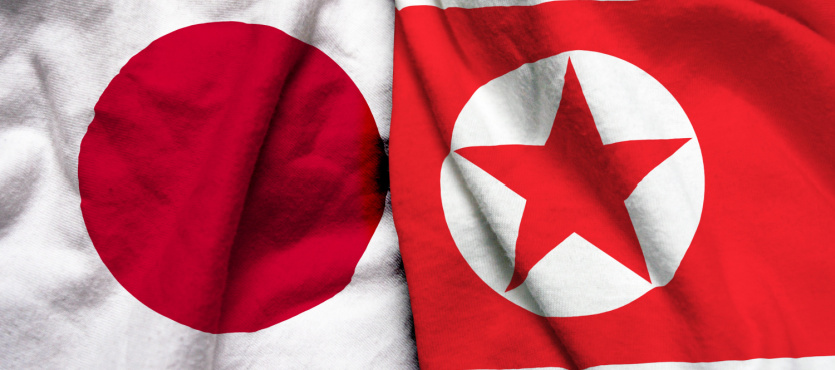Tokyo officials vowed to shoot down any threatening object ahead of a planned North Korean spy satellite launch.
Tokyo expects North Korea to fire the rocket carrying its satellite over Japan’s southwest island chain as it did in 2016, a defense ministry spokesperson said. Analysts say the new satellite is part of a surveillance technology program that includes drones aimed at improving the ability to strike targets in wartime. “We will take destructive measures against ballistic and other missiles that are confirmed to land in our territory,” Japan’s defense ministry said in a statement.
A U.S. State Department spokesperson said any North Korean launch that uses ballistic missile technology, including that which is used to put a satellite in orbit, would violate multiple UN resolutions. The U.S. urges North Korea “to refrain from further unlawful activity and calls on Pyongyang to engage in serious and sustained diplomacy,” the spokesperson said.
Japan and Regional Hot Spots
During the 20th century, Japan played an important role in three major conflicts, the Russo-Japanese War and the two World Wars.
Russian expansion interests in the Far East lead to the 1904 Russo-Japanese War. The Russians believed their non-Western opponent would fold faster than Superman on laundry day. Instead, the Japanese decisively defeated the Russians, sparking unrest in Russia that eventually led to the Communist Revolution in 1917.
During World War I, Japan occupied many German-held Pacific islands. The overall effect was minimal. Most of the fighting was in Europe. Nevertheless, during peace negotiations, the Japanese felt they deserved a seat at the grown-up table. Instead, the major Allies relegated them to the kid’s table.
That slighting led to aggressive expansionism, beginning with Japan’s invasion of Manchuria in 1931 and ending with the Soviet Union’s invasion of Manchuria in 1945. Two atomic bomb attacks hastened Japan’s capitulation.
We’re not even a quarter of the way through the twenty-first century, and Japan is already a key player in three world conflicts.
Japan and North Korea have some history. The aforementioned expansionism included a brutal occupation of the Korean Peninsula.
In January 1991, Japan formally apologized for this brutality and began normalization talks with North Korea. Japan even sponsored North Korea’s UN membership application. Optimism faded quickly. Normalization negotiations almost immediately broke down over North Korea’s demand for compensation and Japan’s insistence on bilateral nuclear inspections. The situation deteriorated even further in 1998. North Korea shot a missile over Japan, an act that nearly led to war.
The cycle repeated in the 2000s. Over and over, further bilateral talks broke down, and North Korea shot more missiles.
Japan is also locked in a dispute with China over the East South China Sea. In 1995, the Chinese found an undersea natural gas field in its East China Sea Exclusive Economic Zone. Japan says the field, which holds about 364 BCF of natural gas, is connected to other possible reserves beyond the median line. Nevertheless, in 2006, the Chinese began drilling in the Chunxiao gas field, which is located in undisputed areas on China’s side, three or four miles west of the median line proposed by Japan. In June 2008, both sides agreed to jointly develop the Chunxiao gas fields, but they have never been able to agree on how to execute the plan.
The dispute over the northern Kuril Islands goes back to the aforementioned invasion of Manchuria. In 1945 American President Franklin Roosevelt promised Soviet strongman Josef Stalin a sphere of influence over the northern Kuril Islands if the USSR invaded Japan.
FDR’s promise was intentionally vague. Stalin interpreted a “sphere of influence” over the “northern” islands as a “complete occupation” of “all the” islands.
The Kurils matter because, like the East South China Sea, they have considerable economic value. For the Russians, they also have considerable strategic value. During the winter, the Russian Pacific Fleet’s only outlet is through the Kuril Islands.
Contractors in Japan
All these threats affect Japan when its relationship with the United States is at a post-World War II low. For example, the Americans had agreed to evacuate Okinawa, one of the largest American military bases in the world. Tensions with China and North Korea put those plans on hold. Nevertheless, it is clear that the G.I. Joes have long since worn out their welcome in Japan.
Contractors take up the slack. They do not count in official deployment statistics. So, they invisibly upgrade Japan’s self-defense capabilities, which might well be tested in the coming months or years.
When contractors get hurt, the 1941 Defense Base Act replaces their lost wages and pays reasonably necessary medical bills. These important benefits are even more important far from home. Healthy contractors often feel isolated in the Land of the Rising Sun. The feeling is even worse for injured contractors.
Contractors are eligible for these benefits if they sustain a deployment-related illness or injury in an overseas war zone.
Victims do not need to prove the direct or exclusive connection. An indirect and substantial connection is good enough. If Mike gets hurt in an off-duty car crash, the DBA usually applies. Similarly, if Mike has an old injury that contributes to his current injury, DBA benefits are usually available.
For more information about DBA benefits, contact Barnett, Lerner, Karsen, Frankel & Castro, P.A.

